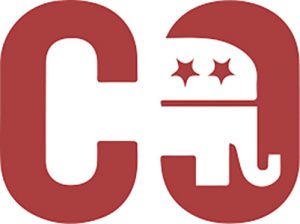DENVER / TRINIDAD — Embattled Trinidad Police Department Detectives Phil Martin and Arsenio Vigil last week denied allegations they falsified arrest warrant affidavits in a failed drug sting operation in 2013 that prompted an American Civil Liberties Union (Foundation of Colorado) lawsuit in Federal Court in Denver. The court filing on March 11, was in response to the ACLU lawsuit filed on behalf of two of the 40 people swept up in the drug sting. Danika Gonzales and Felicia Valdez are suing the police officers individually and the City of Trinidad for damages they suffered as a result of their arrests. Both women, Gonzales, a probation officers and Valdez, a school district employee, both lost their jobs as a result of their arrests even though drug charges against all those arrested were eventually dismissed. The ACLU lawsuit was filed January 8, 2015 and the massive arrests were made in December 2013. The detectives’ and the City of Trinidad’s filing on March 11, 2015 denied “they have engaged in any wrongdoing and / or violated the US Constitution in any respect”. The City of Trinidad’s contention, spelled out in their answer to the suit, said defendants TPD Detectives Phil Martin and Arsenio Vigil, “acted with probable cause
and/or a reasonable, articulable suspicion,” The answer also said, the defendants are entitled to qualified immunity from a lawsuit against them in U.S. District Court. The ACLU lawsuit said, “None of the 40 arrests that were made as part of the 2013 drug sting resulted in a drug-related conviction”. Gonzales and Valdez said in the ACLU lawsuit, ”In 2013, the TPD conducted a drug sting culminating in late December with highly publicized arrests throughout the community in which innocent citizens were arrested based on false, deficient, and misleading arrest affidavits from the TPD who regularly relied almost exclusively on uncorroborated and untrustworthy information provided by confidential informant Crystal Bachicha, who accused various individuals of selling them drugs”. The suit said the police department during the course of the ‘controlled buys’, made as part of the operation, provided an open opportunity for informants to lie with impunity, to divert the police buy money for themselves, to skim drugs for their own use, and to act on the basis of personal motives to frame innocent persons. When the cases began to make the court docket prior to being dismissed, Bachicha, allegedly testified she was not working for the Trinidad police as a confidential informant. In the lawsuit, the ACLU called Bachicha an opportunistic confidential informant, saying she took advantage of the willful blindness and lax supervision on the part of police to falsely accuse innocent people of selling drugs. Informant sentenced Most recently, Bachicha took a plea bargain from the district attorney’s office pleading guilty to one count of perjury. She was sentenced to 30-days in jail; 72 hours of community service and three years probation. In addition Bachicha must pay $2,391 in court fines and fees.




